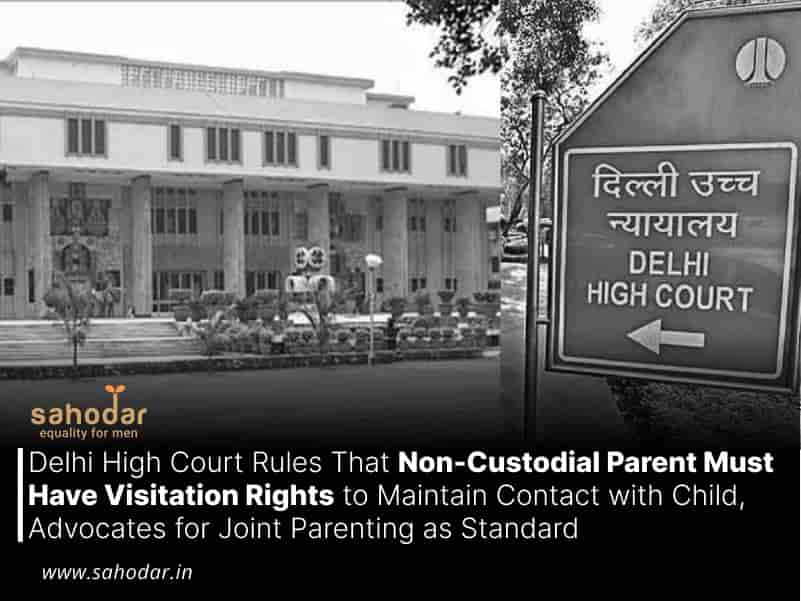The Delhi High Court has ruled that in custody cases, a parent without custody of their child is entitled to visitation rights to maintain their bond. The Court emphasized that joint parenting should be the norm and that the child’s best interest must be the primary consideration in custody decisions.
The Division Bench of Justice Rajiv Shakdher and Justice Amit Bansal was reviewing the father/appellant’s appeal against a Family Court order that denied his request for temporary custody of his 8-year-old son for upcoming festivals. The Family Court had found that the child was uncomfortable with the appellant and that granting temporary custody would cause the child mental trauma.
The Family Court had allowed the appellant to visit his son twice a month in the Children’s Room at Dwarka Courts, under the supervision of a counselor. The appellant’s challenge to this order was dismissed by a Coordinate Bench of the High Court.
The appellant argued that he could not meet the child in the Children’s Room due to the presence of the respondent-wife, which influenced the child’s behavior. He claimed that the child’s reluctance to meet him was due to their long separation and that granting temporary custody would be the only way to address the situation.
The Court reiterated the principle of the child’s best interest in custody matters. It stated that even a parent without custody has the right to visitation to ensure the child maintains contact and receives love and affection from both parents.
“It is a settled position of law that in matters of custody of a minor child, the Court has to look into the best interest of the child. The best interest of the child has to be determined taking into account all relevant circumstances. It cannot also be disputed that a minor child requires the love and affection of both his parents. Therefore, even if the custody of the child is with one parent, the other parent must have visitation rights so as to ensure that the child maintains contact with the other parent. Joint parenting is the norm. If the court moves away from this norm, it should clearly articulate its reasons.”
For granting visitation rights, the Court noted that it may require inputs from experts to determine the manner of visitation. It remarked “One of the facets of joint parenting is the grant of visitation rights. At times, the courts need inputs from domain experts. The timing, duration and whether oversight of say a child counsellor is required during visitation by a non-custodial parent, is a call that the court has to take bearing in mind the best interest of the child.”
In this case, the High Court considered a report from the Family Court Counsellor, which indicated that the child was reluctant and apprehensive about meeting the appellant. Despite the counsellor’s efforts, the child did not respond to his father and began to cry.
The High Court sought a second opinion from the counsellor, whose report stated that the child expressed discomfort in meeting his father or attending court regularly. The report recommended a detailed assessment of the child over 8 to 12 weeks, with no physical or virtual contact between the child and his father during this period. It also noted that the appellant had exhibited threatening behavior due to dissatisfaction with the counsellor’s approach.
Due to the counsellor’s report and keeping in mind the tender age of the child, the Court observed that it would not be in the best interest of the child to grant interim custody to the appellant. It stated “These kinds of interactions can be worthwhile and fruitful only if the child is able to overcome his deep apprehensions in meeting the appellant. In our view, perhaps some more time is required for the child to be comfortable in the presence of his father and interact with him.”
The Court noted that the appellant could visit his son twice a month under the supervision of a counselor at Dwarka Court, as directed by the Family Court and affirmed by the Coordinate Bench.

